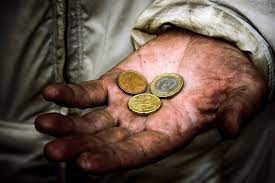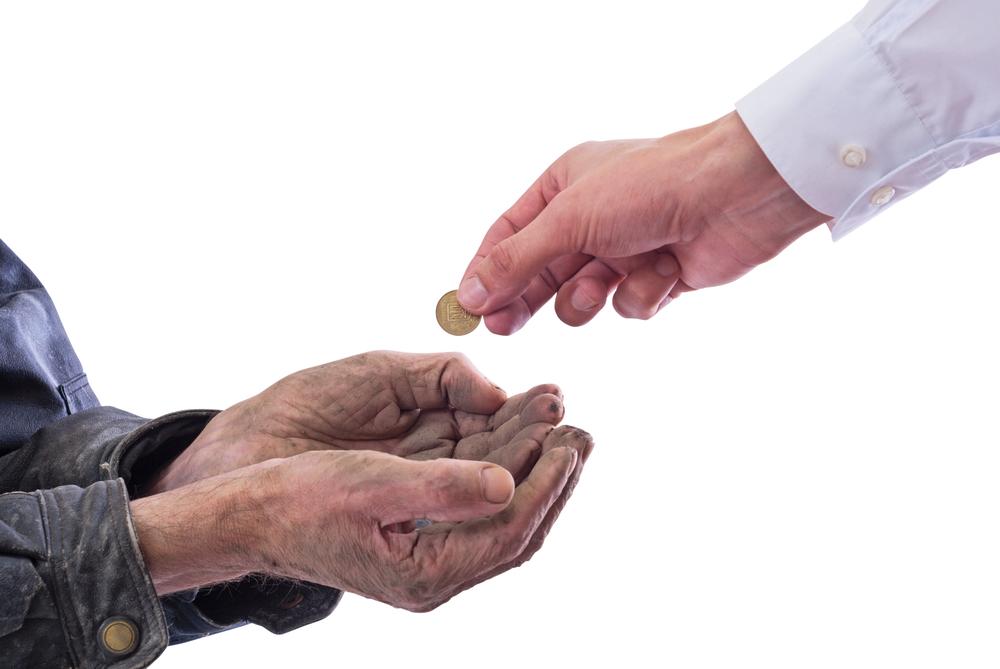The lack of social welfare programs and employment opportunities for the poor, combined with the prevalence of professional begging, leaves genuinely needy people struggling to survive.
By Tajamuul Showkat
Tears which fall from the eyes of orphans, widows, and poor people are a heart-wrenching sight that we all see too often in the beautiful region of Kashmir. While poverty is a global issue, it’s particularly prevalent in this area. According to Wikipedia, 10.35% of the population in Jammu and Kashmir lives below the national poverty line, and only a few percentages of these people are in need of financial aid. It’s worth noting that the total Muslim population of Jammu and Kashmir is 85.67 lakh, who pay Zakat, Aushra, Fidya, Sadqa, and other forms of charity. The Dark Side Of Charity
If we consider only Sadqa of Eid-ul-Fitr, which was previously 60rs/person, the amount becomes a staggering fifty-one crore forty lakh rupees (514,020,000). This is just one way people give charity, and there are many other ways to donate. This amount is more than sufficient to meet the necessary demands of poor people. However, the crucial question is – where does this much amount go? Sadly, every person is giving Zakat, Sadqa, etc., but in the wrong hands, which leads to suicides. People are making begging a business, and many outsiders are begging in stops, buses, roads, and other public places. They get a lot of money, but the mother, sister, brother who is an orphan and for their respect, keep silent and don’t get a penny.

It’s essential to question whom we are giving our charity to. The sad reality is that professional beggars have turned begging into a business in Kashmir. They deceive unsuspecting people with their tactics and take advantage of their generosity. These beggars often dress in tattered clothes, pretend to be disabled or use children to gain sympathy, and then ask for money. They have designated areas where they operate and work in groups. They are skilled at evading law enforcement and even bribe police officers to look the other way. This is a widespread problem in Kashmir, and the lack of social welfare programs and employment opportunities for the poor only exacerbates it.
While it’s understandable that people in need resort to begging as a last resort, professional beggars are different. They exploit the empathy of others and use it for their personal gain. Many of them are not even from Kashmir, but travel there from other parts of India to beg. Some beggars are known to use the money they earn to fund alcohol and drug addiction, making it even more disheartening.
Meanwhile, genuinely needy people are left struggling to survive. They often lack access to basic necessities like food, shelter, and healthcare. This leads to immense mental stress and despair, and in some cases, people resort to suicide. The Jehlum River in Kashmir has witnessed several cases where people have jumped into it out of desperation.
It’s crucial that the government and society as a whole take this issue seriously and work to provide support to those who need it the most. The government should take necessary steps to enforce laws that prohibit begging and punish those who exploit the generosity of others. Social welfare programs and employment opportunities should be created to provide a sustainable solution to poverty. Furthermore, it’s essential to raise awareness among the public about the harmful effects of professional begging and encourage them to donate to legitimate charities.
The views expressed in this article are solely those of the author and do not necessarily reflect the opinions or views of this newspaper


Comments are closed.